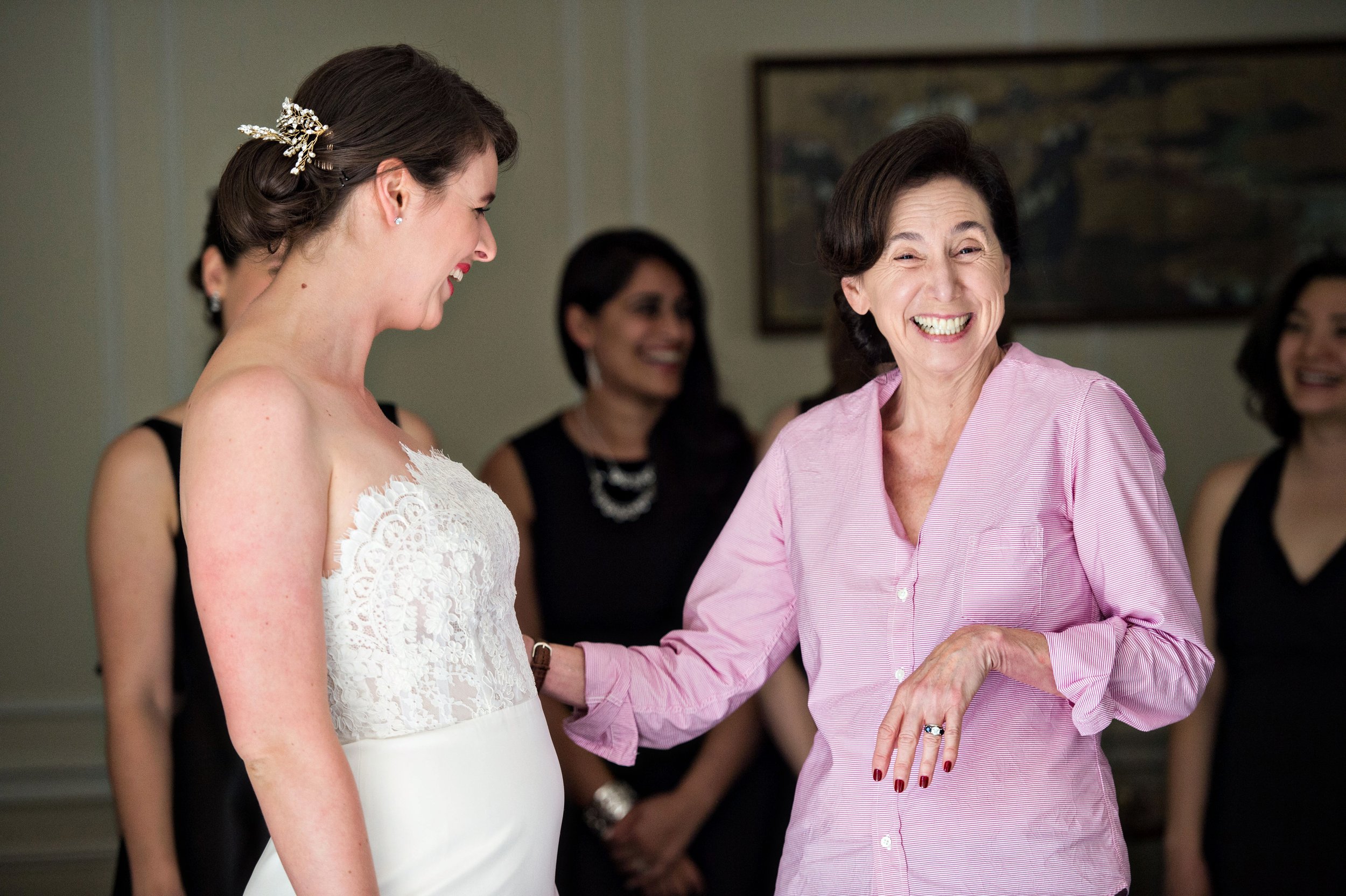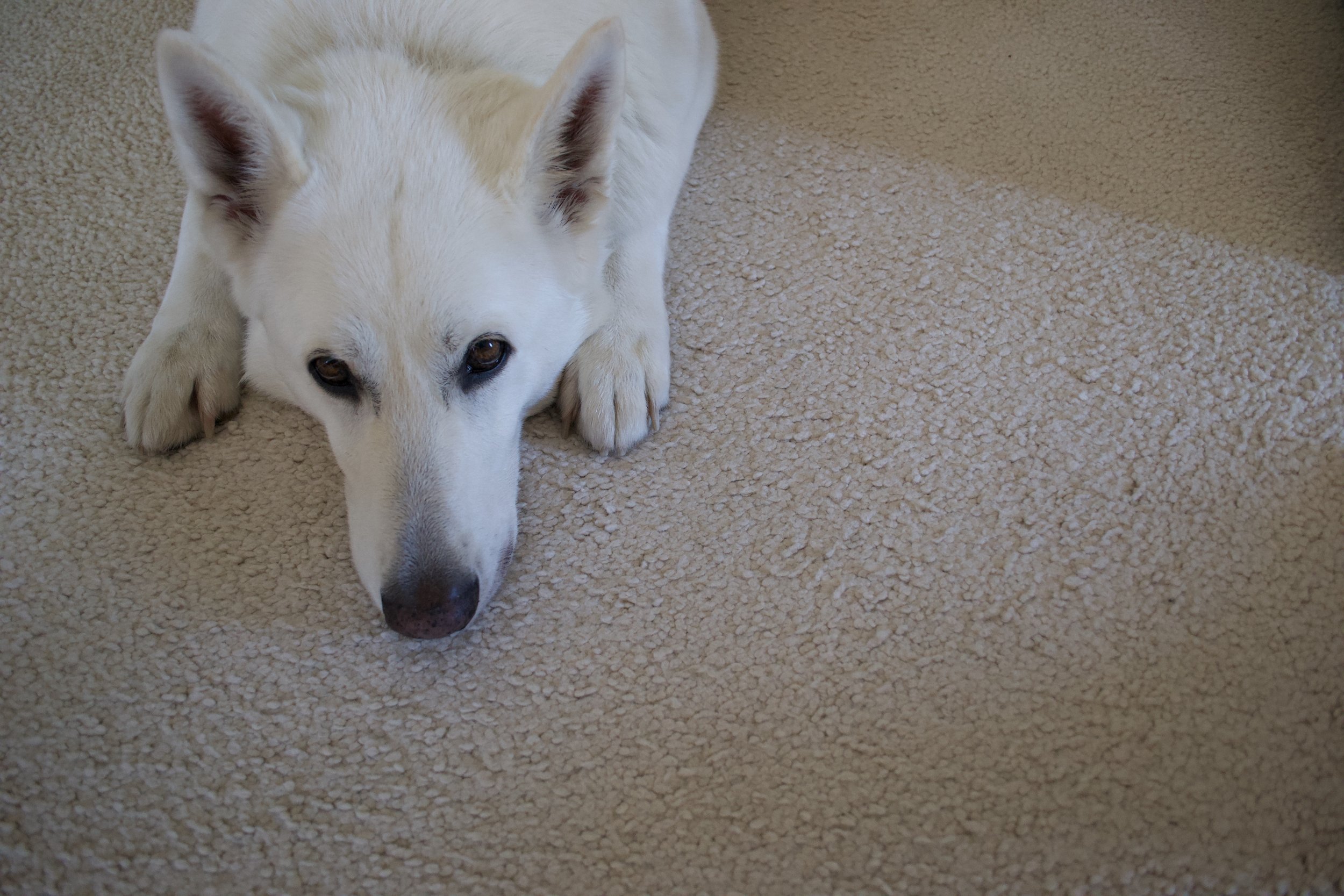Blog
The gift (and importance) of authenticity
Can I admit something?
Sometimes I can be a bit embarrassed about myself. Sometimes I think that I should change and be more social, more productive, more generous, and less emotional. Sometimes I think my body should look different than it does.
But when I run into authentic people, it’s like I can sigh a breath of relief.
I don’t even know how to describe what it is to meet an authentic person — it’s more of the feeling they give off, that vibrant, alive energy. It’s like they are emitting a special frequency, a “ding” that happens when your inner self is in alignment with your outer self…
Do you know what I mean? Whether they are happy or sad or anxious or jazzed up or quiet… when I am with them, their “rightness” is in the air.
It relaxes me.
It reminds me that it’s okay for me to be me, too.
It’s such a gift.
And so, when I find myself wondering if I “should be different,” I remember the best thing I can do is embrace my own authenticity and integrity — as my own gift to the world. So maybe someone else who runs into me will take in a big breath of my energy, and maybe it will help them feel better.
Do you know any people who remind you that it’s okay to be you?
I’m still over here rooting for you.
Katie
While I’m on maternity leave, I’m sharing some of the best posts from my archives — I hope you enjoy! :)
If this essay resonated with you, you'll love my newsletter. Sign up for free + get new ideas every Sunday!
What helped me get rid of jealousy
Do you ever feel jealous?
I know that I sure do. Sometimes my jealousy is this bubbling, sizzling, boiling thing inside of me.
And, for a long time, that made me feel terrible. Feeling jealous made me feel petty, unkind, and small-hearted. Especially when the people that I was jealous of were close to me – friends or family members. Why can’t I just be happy for them?
But then I read something by Julia Cameron in The Artist’s Way that totally changed my perspective.
Cameron argues that our jealousy is a “map” to what we most want in the world.
Even more importantly:
“Jealousy is always a mask for fear: fear that we aren’t able to get what we want; frustration that somebody else seems to be getting what is rightfully ours even if we are too frightened to reach for it.”
Jealousy is just a sign that we want for ourselves what other people have. But the truth is, we can have it, too — we just have to get over our fear and reach for it.
Cameron was never jealous of female novelists, because she’d written several novels. But she always felt extremely jealous of women playwrights (or, as she writes, she had an “unhealthy interest in [their] fortunes and misfortunes.”) It wasn’t until she wrote a play herself that she stopped being jealous, and instead felt only camaraderie. “My jealousy had actually been a mask for my fear of doing something I really wanted to do but was not yet brave enough to take action toward.”
I have found this to be true time and again in my life.
I was jealous of some business school students I knew because it seemed like they were completely confident about their path, while I was floundering and flopping.
I was jealous of a speech therapist I knew for the sensual, grounded, confident way she seemed to inhabit the world.
And I found myself jealous of baristas at my local coffee shop because they just seemed so chill, while I am prone to over-thinking and over-worrying.
After a lot of introspection, I came to understand that I wanted my own certainty about my career path (like the business school students), ease in my body (like the speech therapist), and a softer, more open way of being in the world (like the baristas). And then I started to think about what I needed to do to make that happen.
Two things are important to note about this process, though:
To accurately decode your jealousy, you need to be specific.
I wasn’t jealous of business school students because I want to go to business school myself. I was jealous because they seemed so certain and confident in the path they’d taken.
Jealousy itself is an amorphous, boiling-over emotion and sensation. It doesn’t tell you much, except that you are jealous. You have to take some time to untangle your feelings and figure out what they are telling you.Jealousy tells you a lot about yourself, but not that much about other people.
Those baristas might have been brimming with internal anxiety despite a chill exterior, and those business school students might have been 100% lost about their life path.
I honestly don’t know. I didn’t know any of those people that well. What people project on the outside is often not the same as what they feel on the inside. Jealousy is only a reflection of what I perceive about them, not their own internal truth.
If you use it right, jealousy can go from feeling like an ugly, small-hearted emotion, to a really valuable guide.
So let’s put that into practice.
Your challenge this week is to explore your jealousy. And here’s how (this exercise is also inspired by The Artist’s Way):
Make a list of at least 5 people of whom you are jealous.
For each person, first let yourself really feel your jealousy. Let it flare up, and look at it.
Then, ask yourself what am I jealous of about this person? Get really specific. “They have a creative job,” or “they have fantastic clothes” or “they always seem really at peace with themselves.” Write it down!
Once you’ve made the list, look it over. What trends do you notice? Are you jealous of other people’s closets? Jobs? Confidence? Boyfriends? What could you start changing in your own life, based on what you’ve found?
As always, I’m rooting for you in the week ahead. You’ve got this.
Katie
Superfans may notice that I originally shared this essay back in 2017. While I’m on maternity leave, I’m sharing some of the best posts from my archives — I hope you enjoy! :)
If this essay resonated with you, you'll love my newsletter. Sign up for free + get new ideas every Sunday!
What is somatic awareness and how should you use it?
In my early twenties, in the middle of a quarter-life crisis, my brother suggested I work with a coach.
I guess it could be useful, I thought to myself. Maybe she’ll help me figure out what I should do for my next job.
Oh, I was in for a treat.
I learned many, many things from working with my coach (and that experience is one of the reasons I’m now a coach myself), but one of the most powerful was the power of somatic — or body-based — awareness. Up till then, I’d been a pretty smart, intellectual person, making most decisions using some kind of detailed pro-con list that I analyzed in my mind.
Somatic awareness, which basically just means being aware of the body’s feelings or sensations, totally changed my decision-making process — and is a huge part of how I now work with clients myself.
I wanted to share more about what somatic awareness is, why it’s so incredibly useful, and how you can cultivate it, so I made you a video.
Whether you’ve heard of “somatic awareness" before, or it sounds kind of hippy-dippy and weird, I think you’ll enjoy the video :)
Also! If you haven’t spent much time paying attention to your body’s physical sensations beyond, say, noticing that you feel sore after a hard workout, it can be hard to know where to begin. That’s part of why I don’t talk about this as much on my blog — it’s much easier to explain in an interactive context, like in my group and individual client work.
But this list of sensations, by Larissa Noonan, is a great place to start, if you’re working on your own — she does a great job of putting together a vocabulary of physical sensations. You might complete the sentence: I feel _____ in my ______. For example: I feel buzzy in my chest, I feel hollow in my belly, I feel prickly in my back.
As always, I’m rooting for you. You’ve got this.
Katie
Superfans may notice that I originally shared this essay back in 2018. While I’m on maternity leave, I’m sharing some of my best posts from my archives — I hope you enjoy! :)
If this essay resonated with you, you'll love my newsletter. Sign up for free + get new ideas every Sunday!
"Should I trust my gut or listen to others?"
I just want to set the record straight:
You can take care of yourself better than anyone else in the world.
Yes, of course, we need help.
Yes, of course, we can’t do it alone.
Yes, of course, we must draw on the wisdom and guidance of professionals and parents and family members and friends and doctors and lawyers.
Yes, of course, we can’t be subject matter experts on everything.
But you know what I see happening, far too often?
Brilliant, caring women and men feel overwhelmed and lost and insecure because we've forgotten…no one can take care of us better than we can.
Sure, all of those “experts” might have opinions till they are blue in the face….
But only you can know whether you need twelve hours of sleep tonight, or five.
Whether you need a spinach salad or an apple tart.
Whether you need to push through to finish the project or take a break.
Whether you need a big hug or a big scream or a big whole afternoon alone.
We know what we need if we are willing to listen.
What do you need, today?
Right now?
…
I know you’ve got this. I’m rooting for you.
Katie
Superfans may notice that I originally shared this post back in 2018. While I’m on maternity leave, I’m sharing some of my “best-of” posts from my archives — I hope you enjoy! :)
If this essay resonated with you, you'll love my newsletter. Sign up for free + get new ideas every Sunday!
Four options for when you're feeling emotionally "triggered"
“You’re the most selfish person I’ve ever met.”
...
How did you feel when you read that? How would you feel if someone said that to you?
Would you feel a clenching in your stomach?
Would you think, Oh god, what did I do? I’m so sorry!
Or, she has no right to say that!
Marshall Rosenberg, in his classic (and really fabulous) book Non-Violent Communication, points out that we have four potential responses whenever someone says something negative to us, or whenever we find ourselves in conflict. We can:
Blame ourselves
Blame others
Sense into our own feelings and needs
Sense into other person’s feelings and needs
Which of these four we choose has a big effect on how messy and painful our arguments get. But many of us default to one or two of these responses — and not always the good ones.
Let’s say that someone made a painful accusation about you, something like “You’re an extremely selfish person”. You could respond in one of four ways:
1. Blame yourself: Oh man, I am such a selfish person! I am the worst! I immediately need to apologize for absolutely everything I did to this person!
I don’t know about you, but for much of my life, this was one of my go-to responses. Apologize, apologize, apologize. And there’s a certain good intention there — we want others to feel better, so we accept blame and responsibility.
But, as Rosenberg points out, in doing so we accept the other person’s (negative) judgments of ourselves – which may not always be true. And down the line, this can really mess up our self-esteem, and lead us to feeling chronically guilty, ashamed, and depressed.
2. Blame others: She has absolutely no business telling me that I’m self-centered! If anything, she’s the self-centered one!
This is also something that I’ve done. I mean, haven’t we all? The problem is that this response just generates anger, rather than helping to necessarily resolve the conflict.
If we just say that the other person “shouldn’t” feel that way, rather than having any empathy for how they are feeling, it’s hard to connect and truly resolve conflict.
3. Sense into your own feelings and needs: Wow, I feel really triggered right now. That accusation brought up all the self-judgment that I already have when I try to take care of myself instead of automatically doing what other people want.
Instead of assuming that the other person is right or getting mad at them, with this approach, you simply notice what’s happening to you.
You notice how this one accusation brought up other negative thoughts and self-judgments that already existed in your head. You notice how this particular statement triggered all kinds of other, deeper fears.
When you start from this place you’re not blaming anyone — either the other person or yourself. You’re just giving yourself the chance to notice all these feelings that are already happening, so you don’t get overwhelmed by them and react inappropriately.
4. Sense into the other person's feelings and needs: I guess that she was really wanting to feel supported by me, and because I attended to my own needs instead, she wasn’t able to get what she wanted. It seems like this was really painful for her.
With this approach, you try to assess what the other person was feeling or needing. Again, there’s not any judgment here — she’s not a “bad person” for wanting or needing something, or for having a particular reaction to not having her wants or needs met.
At the same time, you’re not blaming yourself. It’s not that you’re a bad person because you didn’t meet her needs, or because she had a particular emotional reaction.
You’re just noticing what seems to be happening for her.
…
Rosenberg points out that when our main reactions are #1 or #2, we tend to have more painful or messy conflicts with others. We either feel guilty and take on blame that we may not wholly deserve, or we get angry and blame the other person. Either way, we’re throwing a lot of blame around — and that tends to make things worse.
On the other hand, either #3 or #4 are awesome starting places. When we can have empathy and understanding for both ourselves and another person — again, just understanding how both of us are feeling without judgment — we can begin the conversation with kindness and are more likely to be able to diffuse the situation.
Even more powerfully, we all respond more positively when we feel heard and seen with empathy. For example, maybe you couldn’t have behaved differently. But when the other person knows that you hear their pain, and you would like to help them resolve their pain, they tend to relax.
On a personal note, it’s hard to overemphasize how much more kind, relaxed, and safe my arguments with loved ones feel when I can remember to start with #3 or #4. I can’t recommend them enough.
…
And here’s an invitation for you: Think of a recent conflict you’ve had. Which of the four reactions did you have? Which of the four did you completely forget about?
…
As always, you’ve got this. I’m rooting for you.
Katie
This essay was originally shared in 2018 and edited for 2020. While I’m on maternity leave, I’m sharing some of my older, “best-of” posts from my archives, which you may not have seen yet!
If this essay resonated with you, you'll love my newsletter. Sign up for free + get new ideas every Sunday!
Hello from maternity leave!
I wanted to share that I’m officially on maternity leave for the next several months. During this time, I’ll still be posting regularly here, but it will be some of my favorite essays from the last couple of years — the ones that readers have told me resonated with them the most. If you’d like to get my essays via twice-monthly emails, feel free to sign up here.
Once I catch my breath, I'm hoping to share at least a bit on Instagram, so you can join me there, if you'd like — I’d certainly love to see you.
Next week, we’ll be back to essays. But for now, please know that I’m rooting for you in the week ahead. And please root for me as I encounter what may be the greatest challenge of my life — two infants!
We’ve got this :)
Katie
p.s. If you’re craving an encouraging essay this weekend, may I recommend this blast from the past? Particularly if you’ve got any kind of achy sadness or anxiousness.
p.p.s. The boys aren’t here quite yet! But fingers crossed they’ll be here soon :)
If this essay resonated with you, you'll love my newsletter. Sign up for free + get new ideas every Sunday!
Here's why some people don't take your advice
Here’s a reminder: Much of the time, other people don’t want solutions.
Much of the time, if someone’s telling you something that’s challenging for them, they don’t want problem-solving, or suggestions for how they might fix the problem. (Even really good suggestions for how they might fix the problem!)
Much of the time, they just want emotional support.
They want to express their feelings, to feel heard. They want you to say something like, “wow, that sounds so hard.” Or: “This must be a tough time for you.”
It’s really, really tempting, when we hear that someone is struggling, to immediately want to solve the problem for them. We don’t want them to suffer! If we fix the problem, they won’t suffer!
And of course, there is a time when problem-solving makes sense and is extremely useful.
But generally, at least some — and sometimes quite extensive — emotional support needs to come first.
As always, I’m rooting for you. You’ve got this.
Katie
If this essay resonated with you, you'll love my newsletter. Sign up for free + get new ideas every Sunday!
On "driving like a maniac" (Or: One reason why you feel burnt out)
Recently, I picked up David Anderegg’s Worried All the Time, and he said something that really stopped me in my tracks:
“If we often feel our own lives and those of our children have been given too much gas, television is the brake. Metaphorically, we don’t drive at a smooth, steady pace; we drive like maniacs, and then step on the brake when we feel out of control.
“As the felt pace of life approaches the felt pace of emergency room doctors and nurses, we would expect as a matter of necessity that addiction to something will arise. And since we can’t offer our ten-year-olds a beer, we give them something else that they can use to change their mental state immediately.”
In this quote, Anderegg is talking about television; his book was published in 2003, and that concern seems somehow quaint today. But, all the same, I really think he dropped two truth bombs about compulsive behavior, more generally:
Many of us are "driving like maniacs" in our own lives — our nervous systems are chronically stressed and overstimulated. And then we need to slam on the brakes — doing something that numbs or calms us.
The root of the problem isn’t the “brakes.” So often, we bemoan the act of “slamming on the breaks.” I need to stop checking my phone so much! I can’t stop myself when I’m with a jar of peanut butter! I can’t believe I spent three hours on YouTube!
But what I love about Anderegg’s argument is that he separates symptom from cause. Sure, none of these activities are great for you. But as the felt pace of our lives escalates, it is expected, he argues, as a “matter of necessity,” that an addiction to something will arise. We need those “breaks” to slow down our lives.
We will only stop needing our small “addictions,” or compulsive behaviors when we stop “driving like maniacs” in our lives.
Finding a more sustainable life pace is something I talk to clients about a lot, and it’s certainly not a simple, two-step, get-it-done-in-three-days process. Often, there are good reasons why we “drive like maniacs.” But for this week, I wanted to leave you with some questions to start you on the journey:
For how much of your life do you feel like you are, metaphorically, “driving like a maniac?”
What might you lose, if you slowed down your speed at least a little bit? What might you gain?
Do you even know how to find a more sustainable pace?
If you enjoyed this post, you might also enjoy my email newsletter — twice a month, I email you an essay on meaning, work, authenticity, relationships, communication, technology, or the windy path of life. You can sign up here, if you’d like.
As always, I’m rooting for you. You’ve got this.
Katie
If this essay resonated with you, you'll love my newsletter. Sign up for free + get new ideas every Sunday!
One of my role models
I originally wrote this in 2015, but wanted to re-share it, with some edits, in honor of Mother’s Day, and because a newsletter reader recently told me that it was her favorite piece I’ve ever written. (Ever! What an honor!)
…
I learned about exercise by watching my mom.
For my entire life, my mom has taken daily, 3-mile walks. She’s not fancy or precious about it – she just laces up her sneakers, wears old shorts and a t-shirt, and walks the same route in our neighborhood every single day.
It takes her about 45 minutes. But if she doesn’t have much time, she’ll squeeze in a 20- or 30-minute walk.
That’s it.
Here is a photo of me and my mom, before my wedding.
The thing that I have come to appreciate, particularly as I’ve gotten older, is how un-fussy and easy she is about it.
She’s not looking for a form of exercise that is painful, or that she dreads.
On the contrary, she walks because it makes her feel good – it clears her mind and makes her feel calm and happy.
She likes being outside, and she doesn’t have time to drive to an exercise class.
Of course, she also does it because it’s good exercise. Walking nearly every day for most of her life has helped her to stay fit and healthy and looking good, in my humble daughterly opinion (hi mom!). But walking isn’t something that is intensely painful or only feels good “after.” It feels good from the first step.
Part of the reason I wanted to share my mom’s story is because I’ve come to realize how deeply powerful behavioral modeling can be. It’s one thing to “get” something intellectually, and it’s a very different thing to see it in action, over and over.
I saw my mom lace up her sneakers, walk out the front door, and return revived and refreshed, every day of my life.
It wasn’t a big deal.
It wasn’t hard or painful.
It didn’t take much time.
It didn’t cost anything.
It didn’t require a ton of willpower.
She liked it, it was easy and felt good. So she did it every day.
I think that too often the “role models” for fitness that we see and think we should aspire to are people who are running marathons, or who have perfectly toned arms or six-pack abs. We think that we're supposed to want and work toward that level of fitness.
And we often think that it has to be time-consuming, expensive, complicated, or painful.
My mom showed me a different way.
Of course, I’ve tried intense workouts over the years. And I do enjoy a Pilates or yoga class once or twice a week, even though I have to drive to them, and they cost money.
But I always come back to my daily walk.
So I wanted to share it with you. Both to talk about exercise and about role models in general.
To talk about exercise: I don’t see this approach to exercise –moderate, super-easy, not-painful, cheap, and pleasant – advertised as much as I think it should be. With that in mind, my challenge for you this week is to take a walk. I mean it. If you live in a place where it is safe to do so, put on those sneakers, get outside, and move in a way that isn't hard.
To talk about role models: So often, our role models are super-intense, at-the-top-of-their-fields, could-be-on-the-cover-of-a-magazine kind of people. But is that who our role models should truly be?
As always, I’m rooting for you. You’ve got this.
Katie
If this essay resonated with you, you'll love my newsletter. Sign up for free + get new ideas every Sunday!
Initiating in friendships + other relationships
Often, in friendships and relationships, there’s someone who initiates more.
This can be a tricky topic. People who notice that they’re reaching out more can feel unappreciated, and unvalued. They might pull back.
And sometimes that’s appropriate — maybe the other person doesn’t value the relationship as much.
But at other times, as Shasta Nelson points out in her book Frientimacy: How to Deepen Friendships for Lifelong Health and Happiness, just because someone initiates less, doesn’t necessarily mean they want to spend less time together. Maybe the other person is actually just shyer, or less practiced at reaching out. Maybe they get caught up in work more than is good for them.
Maybe they really appreciate the initiative!
So today, I just wanted to offer you something short and sweet: can you thank someone in your life who initiates?
Nelson even offers a lovely little script for what that might sound like:
“It means so much to me that you invite me out so often. I always love our time together and am so grateful that you reach out. I’m so sorry that I’m not very good at giving that same gift back to you, but I want you to know how very glad I am that you haven’t let that stop you from initiating. Thank you!”
Who deserves a thank you in your life, for initiating more often?
As always, you’ve got this. I’m rooting for you.
Katie
p.s. And, of course, sometimes we don’t initiate as much as the other person because… well, seeing them so frequently isn’t our top priority. That’s okay, too! But this exercise is about gratitude for someone whose more frequent initiation you do value.
If this essay resonated with you, you'll love my newsletter. Sign up for free + get new ideas every Sunday!
Not a fan of 5-year-plans? Here's some other goal setting strategies to try
Some time ago, a coach whom I’d met socially suggested that we get lunch. Over tasty cold noodles in Koreatown, we both talked about our coaching practices, our training, and life in general.
Then she asked me what my five-year plan was.
“I don’t have a five-year plan,” I told her simply. “I mean, I have ideas for things I want to do. I know how I want to feel. But I don’t have a precise five-year goal or plan.”
“Me neither,” she confessed, laughing a little. “Isn’t it weird how we’re always trying to get our clients to set goals like that, but we don’t make them ourselves?”
I shrugged. “I don’t ask my clients to set five year plans.”
I think about this conversation a lot. Part of our difference in perspective was due to the diversity of coaches in the world (I wrote more about that here) — she and I had trained in different coaching methodologies and coached in very different ways.
But also, I wouldn’t be surprised if she urged clients to set five-year plans because the idea of a five-year plan is so darn alluring. Many people seek out coaching because they feel lost, stuck, or frustrated in their lives, and the idea of having an official, precise “plan” can feel like a very neat resolution to that problem.
To be clear, I’m not opposed to five-year plans — there are times when they can be essential, and I’m happy to support clients in creating them when appropriate.
But also, the reality of life is that it’s often not linear. We often can’t truly see eighteen steps ahead. We can create a shiny and precise five-year plan, and then it doesn’t actually make sense for us six months later.
So, in that spirit, I wanted to share a couple of alternative ideas, for when you’re craving a five-year plan:
Get clear on your next right step, and take it.
Five-year plans are fantastic, but many of us know what our next right step (or two, or three) is… and we’re still not taking it. We could make a list of the things we know we know that we definitely want to move forward on… and we’re not doing those things.
I don’t say this to make you feel embarrassed. I say this because just executing our next right step is often friggin’ hard and surprisingly complex — it requires overcoming not insubstantial obstacles, internally or externally. So rather than dreaming twenty-four steps in the future, why not spend that time really going deep on why that single next right step hasn’t happened yet?
Ask yourself: Am I taking care of my basics?
Sometimes, we’re feeling anxious or stressed or disappointed in ourselves not because we’re actually totally off in life, but rather because we haven’t been taking care of the essential basics.
These basics will vary from person to person — maybe we haven’t been sleeping, eating well, taking breaks, or moving — or maybe we’ve been spending too much time on screens. For me, my “basics” also means that I’m putting in at least some time on projects that may not be urgent, but really matter to me. This and this are some ideas for “basics” to start with.Strengthen your Inner Compass
Many of us want a five year plan because we feel like: (1) we’re going in the wrong direction in our lives, or (2) we don’t know what direction to go in. In other words, we feel disconnected from our Inner Compasses, which tell us the right direction to go in. (I know that feeling well!)
Having a strong Inner Compass is, in my opinion, more useful than a 5-year plan; a functional Inner Compass should be a highly flexible instrument that will help you get yourself pointed in the right direction now, and make all of the many, many course adjustments that will be needed as you move forward. It’s something that I often work with my coaching clients on in a lot of detail, but here are a couple of ways to get started on your own (one, two, three).
I’d take a strong inner compass over a five-year plan any day because an Inner Compass is inherently flexible — it’s capable of taking in new information, and adjusting.Remind yourself: We’re all just figuring it out, one step at a time.
Or just read this killer Joseph Campbell quote.
…
And if you still want to make a five-year plan, great! It can be an incredibly useful tool. I just don’t think it’s a requirement for a satisfying or productive life.
I’m rooting for you. You’ve got this.
Katie
If this essay resonated with you, you'll love my newsletter. Sign up for free + get new ideas every Sunday!
Zing! Here's one reason why you are struggling to communicate with your partner (or family or friends)
First of all, how are you? You’ve been in my thoughts.
I’ve been okay — I feel lucky that I and most people I know are healthy. But it feels like anxiety about our global situation which is in the air right now, and I didn’t want to just plunge straight into the newsletter, like usual. I’m pregnant — my husband and I are expecting twins, this June — and it feels strange to think about expecting new life and such a life transition, in the midst of such an uncertain moment.
I wanted to send you something that might be useful in this time; and above all, please know that I’m rooting for you — and for all of us — right now. Take care, everyone.
Here’s something that slapped me in the face recently, and that might be particularly relevant in our era spending-a-particularly-large-amount-of-time-at-home-with-people-we-love (aka COVID-19):
“If you don’t have a question, don’t ask a question. Never dress up an assertion as a question. Doing so creates confusion and resentment, because such questions are inevitably heard as sarcastic and sometimes mean-spirited.” (172, emphasis mine)
That’s from Difficult Conversations, by Douglas Stone, Bruce Patton, and Sheila Heen. Here’s a couple of examples they give, of questions that are actually just “dressed up” assertions:
“Are you going to leave the refrigerator door open like that?”
“Is it impossible for you focus on me just once?”
“Do you have to drive so fast?”
Stone, Patton, and Heen point out that all of these questions are actually disguised versions of feelings or requests. Here is how the same questions might be said, as assertions:
Instead of Is it impossible for you focus on me just once?: “I feel ignored” or “I’d like for you to pay more attention to me”
Instead of Are you going to leave the refrigerator door open like that?: “Please close the refrigerator door” or “I feel frustrated when you leave the refrigerator door open”
Instead of Do you have to drive so fast?: “I’m feeling nervous” or “It’s hard for me to relax when I’m not in control”
And (this is really the zinger) the authors point out that there is, in fact, a reason, why we didn’t just start with the more direct request or expression of feelings — because it makes us feel vulnerable. “Turning what we have to say into an attack — a sarcastic question — can feel safer,” they point out.
But there’s a serious downside of hiding our vulnerable requests or emotions as questions: the other person is likely to miss the underlying feeling or request.
Instead, all of their energy will be focused on the sarcasm and attack that they likely heard (or felt that they heard) within that question. “Instead of hearing that you feel lonely, they hear that you think they are thoughtless,” Stone, Patton, and Heen point out. The other person is so focused on defending themselves, that they often don’t attend to your needs.
Think about it. What are you more likely to respond with compassion and care to:
Do you think you’ll ever get around to fixing that broken lamp?
Or
I’m feeling kind of anxious and having our light fixed would really help me feel calmer.
So here’s Stone, Patton, and Heen’s advice, again, now that you know why they recommend it:
“If you don’t have a question, don’t ask a question. Never dress up an assertion as a question. Doing so creates confusion and resentment, because such questions are inevitably heard as sarcastic and sometimes mean-spirited.” (172)
To be honest, within hours of reading this advice, I noticed myself saying a question that was actually an assertion. Zing, indeed.
So that’s my question for you this weekend: Can you listen to your questions in the hours or days ahead? What questions could actually be phrased — more authentically, more vulnerably, more usefully — as assertions?
As always, you’ve got this. I’m rooting for you.
Katie
If this essay resonated with you, you'll love my newsletter. Sign up for free + get new ideas every Sunday!
One way to improve your sense of belonging - that doesn't require anyone else to do anything
Belonging is something that most of us crave.
The sense that we’re held + safe within a community that cares for us — there’s certainly nothing more primal. The lack of it, and we ache.
So often, we can feel that we need to change ourselves, mold ourselves, to a community to find that belonging. Chop ourselves down, or add bulky armor that never quite feels real.
And yet, my favorite thoughts on belonging point to a different way. In Brené Brown’s Braving the Wilderness, she shares a conversation between Bill Moyers and Maya Angelou, on public television in 1973:
Moyers: Do you belong anywhere?
Angelou: I haven’t yet.
Moyers: Do you belong to anyone?
Angelou: More and more. I mean, I belong to myself. I’m very proud of that. I am very much concerned about how I look at Maya. I like Maya very much. I like the humor and courage very much. And when I find myself acting in a way that isn’t…that doesn’t please me — then I have to deal with that.
This exchange, and Angelou’s wisdom, has been swirling inside of me recently. So often, we define “belonging” as something that’s about other people, about what people outside of ourselves do or do not give us.
But what if the only “belonging” that truly matter is whether you belong to yourself?
So I’ll ask: do you belong to yourself? If not, why not?
As always, I’m rooting for you. You’ve got this.
Katie
If this essay resonated with you, you'll love my newsletter. Sign up for free + get new ideas every Sunday!
A reminder for when it feels like other people are getting ahead of you in life
Here’s a reminder:
You’re allowed to go at your own pace.
And even: You may not have a choice, but to go at your own pace.
Other people may seem like they’re sailing through — making the smart decisions, getting the great opportunities, doing so well with their career and relationships and art and bodies. And that’s great.
But your journey may not be so linear, and it may not be so fast.
This is not to say that you shouldn’t try. This isn’t to say that you shouldn’t make changes when appropriate, do deep self-examination, and put in the work.
But it is to say that your pace may be different than theirs, and that’s allowed. And more than “allowed,” it may be inescapable. Inevitable.
Sure, we may not be grateful for the roadblocks and wrong turns and burdens that have slowed us down. But our pace is our pace.
How does it feel to at least stop fighting it?
I know you’ve got this.
Katie
If this essay resonated with you, you'll love my newsletter. Sign up for free + get new ideas every Sunday!
What a 17th century French mathematician has to teach us about digital distraction
Here’s something that I can’t get out of my mind recently:
“All of humanity’s problems stem from man’s inability to sit quietly in a room alone.”
— Blaise Pascal
Pascal’s quote is fundamentally about solitude and connecting with yourself. Living in the early-to-mid 1600s, he defined solitude as sitting quietly in a room alone. Which makes sense — at that time, there wasn’t much you could do except connect with yourself when you were in a room alone.
In 2019, by contrast, you can be in a room alone, and yet not be truly alone. If you’re reading the news or watching Netflix or scrolling social media, you can avoid any kind of connection with yourself.
This quote made me wonder: Sure, most of us in 2019 evade solitude by using technology. But is the desire to evade true solitude even more fundamental than that? Have we always avoided the uncomfortable feelings and thoughts that can come up when we’re alone?
I get why we do it. And yet, solitude can be so helpful for shifting from being reactive to being intentional, processing feelings, doing focused work, and thinking big picture.
What do we gain when we avoid true solitude? And what do we lose?
As always, I’m rooting for you. You’ve got this.
Katie
If this essay resonated with you, you'll love my newsletter. Sign up for free + get new ideas every Sunday!
An easier way to improve productivity
Here’s something I try to live by:
Anything worth doing is worth doing badly.
You know that project you’ve been meaning to work on more?
That person you’ve been meaning to talk to?
That exercise class you’ve been meaning to go to?
If it’s worth doing, it’s worth doing badly.
I’m not against having standards, but so often we don’t actually do the friggin’ thing because we are afraid it will go… badly. Or weirdly. Or not-excellently.
If we write that novel despite feeling uninspired, it will be cringe-worthy.
If we say I’m sorry or I love you or I wish we talked more, it will be awkward to get the words out.
If we show up at the exercise class, we’ll barely be able to do 35%.
And yet:
Isn’t writing a cringe-worthy novel better than always wondering if we could?
Isn’t fumbling the words to “I miss you” or “we need to talk” better than letting those feelings stay unsaid?
Isn’t showing up and letting ourselves look sweaty and foolish better than…not?
Isn’t anything worth doing, worth doing badly?
So here’s my invitation for you, this week: What in your life is worth doing? Could you let yourself do it badly?
As always, you’ve got this. I’m rooting for you.
Katie
If this essay resonated with you, you'll love my newsletter. Sign up for free + get new ideas every Sunday!
Unplugging from technology + Technology Overuse Syndrome (TOS) (Which I made up, but is also real)
I’d like to name a condition. It’s not a new condition, but I’m not sure that it has an official name and I think it needs one. I’m calling it Technology Overuse Syndrome (TOS), and here are the symptoms that I’ve noticed in myself:
Never feeling like you have enough time, or like you never quite get to things that matter to you
Feeling at least a little emotionally tired, much of the time
Feeling low-level anxiety, much of the time
Wondering if your brain isn’t as sharp, or your focus isn’t as good, as it used to be
Having trouble focusing on a single task without doing some technological “checking” (of the news, email, social media, etc.)
There’s quite a lot of research suggesting that the constant use of technology is making Gen-Z/iGen teenagers the most stressed-out, anxious, and depressed generation yet.
I’m not sure why it would have that effect on teens and not have at least some effect on adults, too. Sure, adults are more fully formed, but so many people I talk to experience low-level anxiety and tiredness much of the time. It’s true that there are many causes — our jobs ask a lot of us, we have kids, we’re busy — but I also think that many, if not most, of us are suffering from TOS without realizing it.
The treatment for TOS, in my experience, is getting more intentional about your technology usage.
Becoming “more intentional” doesn’t mean that you can’t use technology for pleasure. It doesn’t mean that you can’t use technology to numb out when you’ve had a tiring day or you just need a break.
It just means that you don’t accept, blindly, the way that technology tends to suck you in. It means you ask questions like, “Does this serve me?” and “What am I wanting this particular technology usage to give me?” and “Am I avoiding something?” It means that you, gently and gradually, adjust your technology usage so that you maximize the benefits while reducing the downsides.
On a personal level, I’ve been shocked by how much getting more intentional about my technology usage — not perfect, just more intentional — has improved my focus, given me more time, and, more importantly, reduced that low-level fatigue and anxiety.
I’ve also found it to be a remarkably useful intervention with my clients. Getting more intentional about technology gives them more time, emotional resilience and energy, and clarity about what they want and how to move forward — no matter what our coaching topic is. And, shockingly, there are very few downsides (the only one is that you may have to become aware of challenging feelings that were under the surface — but this is a pretty common side effect of coaching, more generally.)
So, this weekend, I wanted to say: Do you experience the symptoms of TOS? Are there any other symptoms that I haven’t identified? (If so, hit reply on this email and let me know! Or leave a comment!)
And, of course, if you’re experiencing the symptoms, what could be one, small step towards doing something about it? Here’s a couple of ideas:
Today, each time before you check your email or Instagram, write down: What am I hoping that this will do? (Entertain you? Numb you? Distract you from your stress or fatigue?)
Afterwards, write down: Did this do what I hoped it would do? Somehow writing it down draws your attention to it in a different day and forces you to be more honest about what’s serving you and what isn’t.
Just once today, when you’re about to check Facebook or your favorite news site…don’t. Lie on the floor or sit in a chair and look out the window or go outside for 90 seconds. Do you feel bored? Notice what feelings are in your body. Notice what you’re truly needing in this moment.
Or, if you’re in LA, join my 6-week Tech With Intention group! Starts Feb 6 :)
As always, you’ve got this. I’m rooting for you.
Katie
If this essay resonated with you, you'll love my newsletter. Sign up for free + get new ideas every Sunday!
A poem to help you follow your dreams (even if it's just getting your to-do list done)
Here’s something that gripped my heart recently:
Suppose that what you fear
could be trapped,
and held in Paris.
Then you would have
the courage to go
everywhere in the world.
All the directions of the compass
open to you
except the degrees east or west
of true north
that lead to Paris.
Still, you wouldn’t dare
put your toes
smack dab on the city limit line.
You’re not really willing
to stand on the mountainside
miles away,
and watch the Paris lights
come up at night.
Just to be on the safe side,
you decide to stay completely
out of France.
But then danger
seems too close
even to those boundaries,
and you feel
the timid part of you
covering the whole globe again.
You need the kind of friend
who learns your secret and says,
“See Paris first.”
— “Fearing Paris,” by Marsha Truman Cooper
Oh man. That last line — “See Paris first” — it reverberates through me every time I read this.
Can I write it again? SEE PARIS FIRST.
Of course, the question is: What is your “Paris”? To me, it’s that nagging feeling that something needs your attention. It’s that subtle “something is off” feeling about something in your life.
Most of us will travel the whole world, going everywhere except our own “Paris.” We’ll work on all kinds of parts of ourselves…except that one. But, of course, the longer we wait, the more complex, gnarly, unsettling “Paris” becomes.
So, today, let me be that kind of friend for you.
Today, let me suggest: Hey you, why don’t you see Paris first?
…
I first read “Finding Paris” in James Hollis’ lovely book “Swamplands of the Soul,” which I highly recommend.
As always, you’ve got this. I’m rooting for you.
Katie
If this essay resonated with you, you'll love my newsletter. Sign up for free + get new ideas every Sunday!
A quiz, helpful to help you figure out what you want
Today, I have a quick, helpful 3-question quiz for you (who doesn’t love a quiz?):
Question #1: How do you feel, in this moment?
Answers to this question must be physical sensations — things that you can feel in your body. “Sad” or “Happy” are not physical sensations.
You might have an easier time if you used this great list — try to complete the sentence “I feel ______ in my ______” (e.g., I feel buzzy in my belly. I feel fluttery in my chest.)
Question #2: How do you want to feel today?
Answers must also be actual physical sensations — “I want to feel light and energized today.”
Question #3: What actions can you take, today, to feel that way in your body?
Be realistic, please.
…
So often, when we think about what we “want,” we think about what we want to achieve (“I want to get everything done on my to-do list”) or emotions we want to feel (“I want to feel happy!”)
Achievements and emotions are great, but they can also be surprisingly difficult to control. Maybe you’d like to do everything on your to-do list, there simply isn’t time, or the other people’s actions get in the way. Maybe you do everything “right,” but you still don’t feel happy!
Physical sensations, however, are often more within our control.
I might not be able to “force” myself to be happy, but if I notice that I want to feel “relaxed and open,” I can take actions that make me feel more relaxed and open in my body — even in the midst of an incredibly busy day or at a crowded social event. And if I feel more relaxed and open, I will have an overall improved sense of well-being — even if I still have some lingering sadness, for example.
When I took this quiz, at 2:14 pm on a Tuesday, I noticed that I was feeling a little trembly and fluttery in my chest and belly. I’d like to feel spacious and calm.
I spent a couple of moments thinking about what I wanted to prioritize, for my afternoon and evening (stretching my body, not filling every moment of downtime with entertainment, staying off of the internet except for work). Sure, I already knew that those things made me feel good, but if I hadn’t done this exercise, I probably would have spent my time differently.
So, how do you want to feel today? What actions can you take that will help you feel that way?
You’ve got this.
Katie
p.s. Given the season that we’re in, this is a great one to do before a challenging (or even very exciting!) holiday party or event.
If this essay resonated with you, you'll love my newsletter. Sign up for free + get new ideas every Sunday!
How disconnecting from social media has helped improve my friendships
At the beginning of the year, I was chatting with my lovely sister-in-law. She had stopped using social media, and what she told me about her experience landed in my gut:
I met up with some friends who I hadn’t seen in a while, and I realized that since I hadn’t been on social media, I didn’t know what they’d been up to. It was actually really nice — hearing what they’d been up to without having already heard about it on Instagram.
I realized that I don’t *want* to know what my friends are doing through social media. I want to hear it from them, directly.
Hearing about her experiences helped me name a subtle feeling that I hadn’t been able to previously put into words: I didn’t feel great when I saw friends’ posts on social media.
On one hand: Duh. There’s no shortage of research linking social media use to envy, loneliness and depression.
But on the other hand, I hadn’t really acknowledged to myself before the subtle ways in which social media was affecting how I felt about my relationships.
If I was being truly honest with myself, two things were true:
I didn’t love looking at posts by my old friends who lived far away. When we did catch up, I was so happy to hear that they were having fun. But somehow watching on social media emphasized a slight feeling of distance between us, and made me feel more disconnected from them.
I also didn’t love looking at posts from new friends, who I was just starting to get to know. Their social media presence, while always very nice, gave me a different experience of them than actually being with them directly. I wanted to get to know the real them, not their online personas.
Inspired by that conversation, I’ve mostly stayed off of social media, too, for the past eight-ish months.
The results? On a personal level, I’ve loved it. I haven’t noticed any reduction in the quality of my most important relationships. On the contrary — I really enjoy being able to hear what my friends are up to without having heard about it on social media first. I love forming connections with new friends, without being influenced by their online presence. That subtle sense of envy or eavesdropping has faded away.
And, of course, there’s the extra time!
So here’s my question for you: How might your experience of your personal relationships be different if you only heard from your friends directly, not through social media? What would you lose, and what would you gain?
…
I will also acknowledge that many of us use social media for professional reasons, and cannot simply stop using it. But I think that it’s possible to get at least some value from this idea, even if we can’t completely stay off social media for professional reasons (or simply if we don’t want to for personal reasons!). How could you customize this to your situation?
I’m in your corner rooting for you.
Katie
If this essay resonated with you, you'll love my newsletter. Sign up for free + get new ideas every Sunday!



















